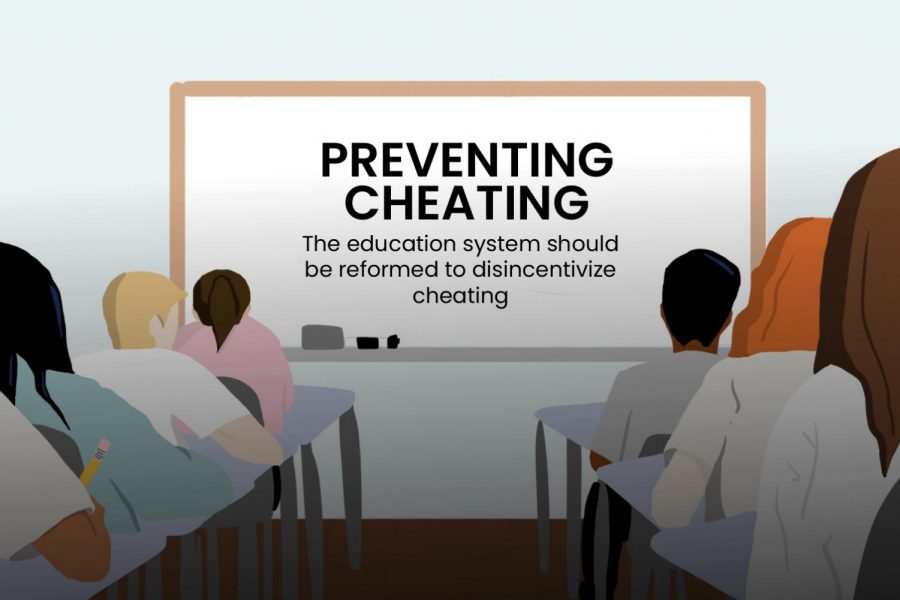Staff editorial: The school system needs to be restructured
The school system’s focus on memorization and multiple choice tests is harmful for students
March 25, 2020
For many years, the education system has been built upon the idea of getting good grades. While cheating has always been a problem, in recent years it has been on the rise due to its increasing ease. Between phones, smart watches and the increase of online tests, students have been desensitized to the idea of cheating.
In addition, the increased pressure of school has made cheating increasingly common. Whether the goal is entry into a good college, living up to parents’ expectations or simply graduating high school, students have had many reasons to get an advantage in any way possible. Despite the steep consequences that students who are caught cheating face, the need to get the grade often outweighs the possible consequences.
Even if students always have the incentive to cheat, the problem could be reduced if teachers modified their teaching style. While no one is arguing that teachers are to blame for cheating, they can still take steps to prevent it.
The education system’s focus on memorization allows students to pass tests without having retained the information. This creates students who aren’t prepared for the rigors of college or the workplace. The best way to remedy this is to focus on discussion and written responses, which lessens students’ ability and incentive to cheat.
To reshape this flawed system, in-class assignments should be replaced by teacher-led student discussion that better engages students, while still forcing them to stay on topic and learn the material. This would minimize mindless Googling, copying and fulfilling the bare minimum, and encourages students to voice their questions, make connections and develop opinions about the content. Although this class structure may sound more difficult, it will help students find the content more meaningful to their lives so that they are more likely to actually retain the information and put in the effort to learn the content.
Another crucial change would be to restructure tests. Required classes generally use traditional multiple choice tests that emphasize names and dates. Teachers should instead measure students’ knowledge, as done in AP U.S. History teacher Jeff Wieland’s class, by utilizing written-response questions that require a deeper understanding of the material. While classes would not need to have the same rigor as AP U.S. History, this general teaching strategy can be utilized in on-level classes just as easily.
Although these measures will not completely eliminate cheating, they are a step in the right direction. While students will always try to cheat, these changes would disincentivize students from the practice. Even if these changes may be difficult for teachers, the benefits that students would receive are worth the cost. By better engaging them with discussion, students retain information and gain a deeper understanding of the content, while disincentivizing cheating.










